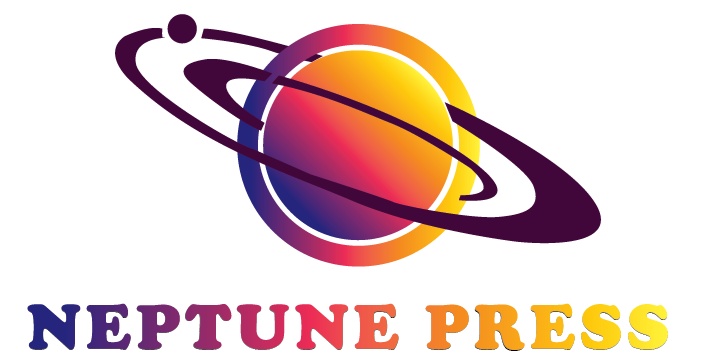Sustainable Printing: How Our Company is Reducing Its Carbon Footprint in Malaysia
Have you ever thought about the impact of traditional printing practices on our environment? What if we told you that sustainable printing, also known as eco-friendly printing or green printing, holds the key to addressing these concerns?
By embracing environmentally conscious practices, businesses can significantly reduce their carbon footprint and contribute to a greener future. In this article, let us showcase how Neptune Press – a pioneering sustainable printing company in Malaysia, is dedicated to transforming the printing industry with its eco-friendly solutions.
Discover the importance of sustainable printing in mitigating environmental harm and learn how Neptune’s innovative approach is setting new standards for sustainability in the printing sector.
What are the environmental impacts of printing?
Traditional printing practices have long been known to contribute to environmental degradation. Let’s examine some of the key areas where these practices take a toll on our planet:
Deforestation: The paper used in printing is predominantly sourced from trees, leading to deforestation and habitat loss. According to the World Wildlife Fund (WWF), around 18.7 million acres of forests are lost annually, equating to 27 football fields every minute.
Water pollution: The production of paper and ink generates waste that pollutes water bodies, affecting aquatic life and water quality. A study estimates that paper production is the third-largest industrial polluter of air, water, and soil in the United States, releasing over 100 million kilograms of toxic pollution each year.
Greenhouse gas emissions: Energy-intensive printing processes, along with the transportation and disposal of print materials, contribute to the emission of greenhouse gases. The pulp and paper industry is the fifth largest consumer of energy worldwide, accounting for 4% of all energy used by the industry sector.
Hazardous materials: Conventional inks contain heavy metals and volatile organic compounds (VOCs) that pose risks to human health and the environment. These inks release pollutants during production, printing, and disposal, exacerbating air and water pollution.
Our Sustainable Printing Practices
Neptune has adopted a comprehensive approach to minimize its environmental impact by implementing the following practices:
Eco-friendly inks: By using vegetable-based inks and water-based adhesives, we minimize the release of harmful chemicals into the environment. Vegetable-based inks are made from renewable resources like soybeans, linseed, and corn, and have a significantly lower VOC content than petroleum-based inks.
Recycled paper: Neptune utilizes recycled and Forest Stewardship Council (FSC) certified paper, ensuring responsible sourcing and reducing deforestation. Recycled paper production generates 73% less air pollution than virgin paper production. Furthermore, FSC certification guarantees that paper products come from responsibly managed forests that provide environmental, social, and economic benefits.
Energy-efficient printers: Our state-of-the-art printers consume minimal energy, thereby reducing greenhouse gas emissions. The energy consumption of our printers is up to 30% less than that of conventional printers, thanks to advanced technologies such as automatic standby and sleep modes.
Waste reduction: We implement efficient printing techniques that reduce waste and utilize environmentally-friendly disposal methods. By incorporating waste-reducing practices like duplex printing, print-on-demand, and digital proofing, we significantly minimize paper usage and waste generation.
Digital proofing: Neptune offers digital proofing options, reducing paper consumption and transportation-related emissions. This practice eliminates the need for physical proof, saving time, resources, and energy.
Benefits of Implementing Sustainable Printing Practices
Incorporating sustainable printing practices offers multiple advantages:
Reduced environmental impact: By adopting eco-friendly printing solutions, businesses can significantly reduce their carbon footprint and help mitigate the negative effects of printing on the environment.
Cost savings: Sustainable printing practices often lead to reduced material usage and energy consumption, translating to cost savings for businesses. For example, using recycled paper can be more cost-effective than virgin paper, and energy-efficient printers lower electricity bills.
Improved brand reputation: Companies that demonstrate environmental responsibility are likely to enjoy better brand perception and customer loyalty. A recent study found that 66% of global consumers are willing to pay more for sustainable goods.
Compliance with regulations: Sustainable printing practices align with the Malaysian government’s environmental regulations, ensuring that businesses remain compliant with relevant laws. By adhering to these standards, companies can avoid penalties and potential damage to their reputation.
Enhanced innovation and competitiveness: Embracing sustainable practices can foster innovation and help companies stay ahead of the curve. By investing in eco-friendly technologies and strategies, businesses can differentiate themselves from competitors and create a unique selling proposition.
Embracing Sustainable Printing: A Call to Action
As consumers and businesses become increasingly aware of the environmental impacts of their choices, there is a growing demand for eco-friendly products and services. Sustainable printing is no exception. By adopting sustainable printing practices, businesses can play a pivotal role in conserving natural resources, reducing pollution, and promoting a cleaner, greener future.
Now more than ever, it’s essential for companies to evaluate their printing processes and make a conscious effort to incorporate environmentally friendly practices. Neptune Press is proud to be a leader in sustainable printing in Malaysia, and we invite you to join us in our mission to protect our planet for generations to come.
So, how can you get started on your journey towards sustainable printing? Here are a few simple steps you can take:
Assess your current printing practices: Analyze your existing printing processes and identify areas for improvement. Evaluate the types of paper, inks, and printers used, as well as your waste management strategies.
Research sustainable alternatives: Explore eco-friendly options such as recycled paper, vegetable-based inks, and energy-efficient printers. Familiarize yourself with certifications like FSC, which indicate responsible sourcing and sustainable practices.
Educate employees and stakeholders: Ensure that your staff and stakeholders are informed about the benefits of sustainable printing and how they can contribute to the company’s efforts.
Monitor and measure progress: Track the environmental impact of your sustainable printing practices and make adjustments as needed. Regularly review your progress and strive for continuous improvement.
By taking these steps, you can make a positive impact on the environment and position your business as a responsible, forward-thinking organization. Sustainable printing is not only an ethical choice but also a smart business decision that can lead to cost savings and an enhanced brand image. Let Neptune be your trusted partner in your journey towards a more sustainable future.
Join us in embracing a greener future and choose Neptune Press for a more sustainable printing experience.






